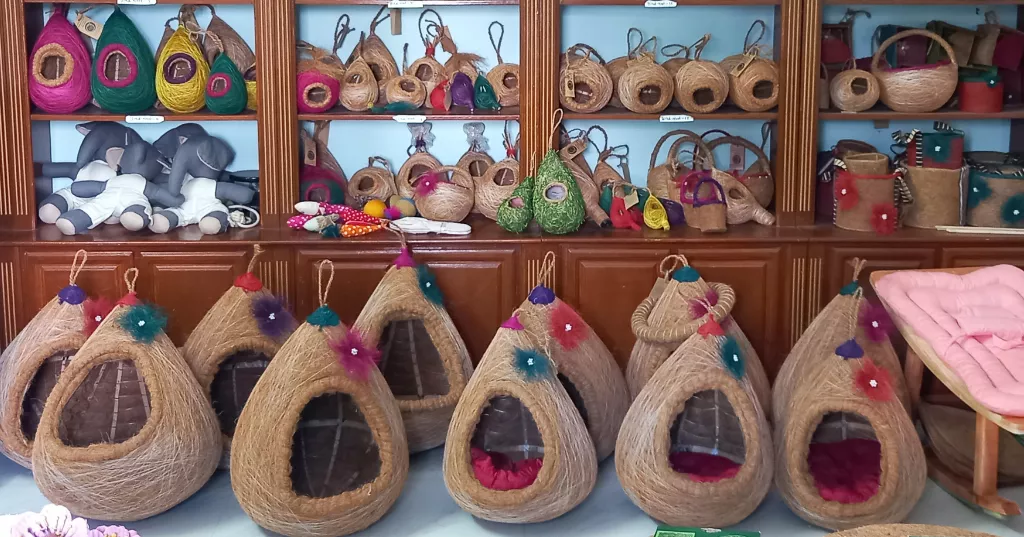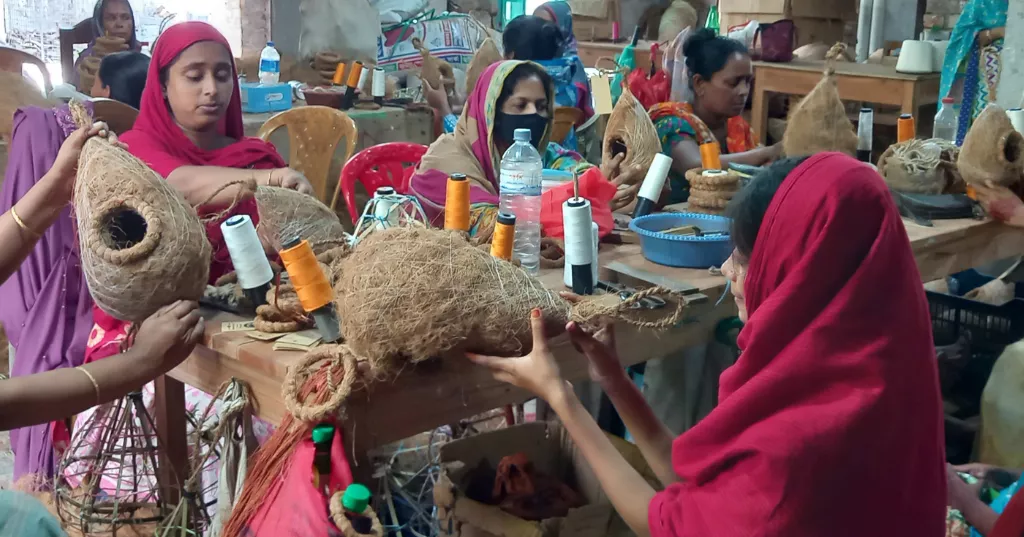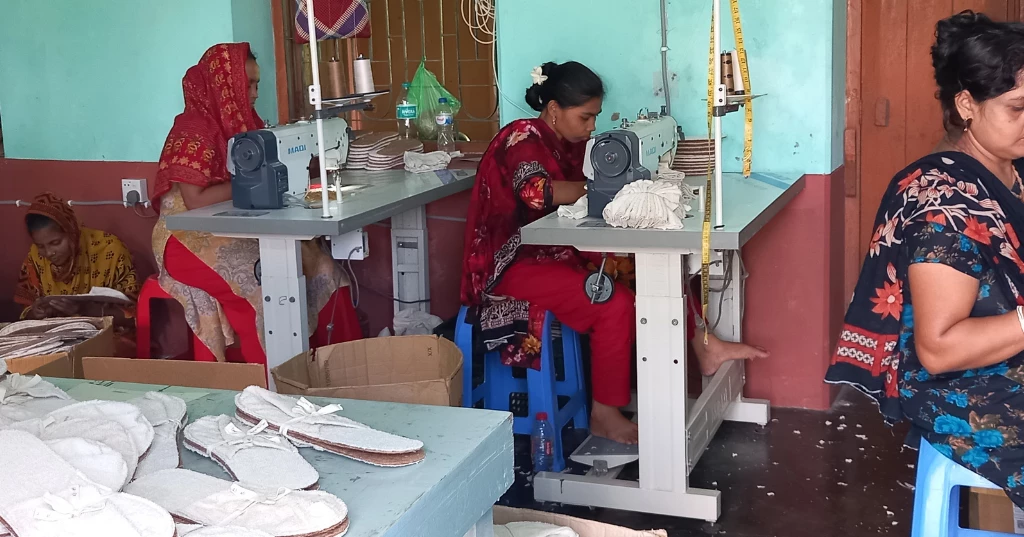In a quiet corner of Bagerhat’s Basabati area, the hum of sewing machines, the rustle of coconut husks and the steady hands of women workers are quietly shaping a story of empowerment, innovation and global reach.
Here, female entrepreneur Rozy Ahmed has established a women-led cottage industry where dozens of local women produce an array of handmade, environment-friendly items – birdhouses, pet beds and toys, fabric slippers, baby accessories, and decorative flower pots – each crafted with artisanal care and aimed at international markets.
Using sustainable materials such as coconut husk, bamboo, wood, cotton, fabric and jute, these products have gained popularity both at home and abroad.
Birdhouses, slippers, soft toys, and hair bands made in Bagerhat are now being exported to Belgium, Germany and Greece.
Every item stitched, shaped, or assembled in Rozy’s workshop represents not only the skill of its maker but a growing connection between rural Bangladesh and the global economy.
The initiative began in 2019, during the early days of the Covid-19 pandemic, when Rozy started producing coco poles, mulching mats and flower baskets for local sale.
As the pandemic deepened in 2020, she turned crisis into opportunity by involving unemployed women from her neighbourhood.
Boat craftsmen in Narail struggle for survival
Starting with 10 to 12 trainees, her small venture received its first breakthrough with a bulk foreign order for 1,000 birdhouses.
“Buyers from different countries are showing interest in these eye-catching products,” Rozy said.
“Foreign clients are getting in touch through local buyers to place orders," she said.
From that point, the business began to grow. Rozy developed new designs and expanded her workforce.
By 2022, the factory was exporting to Belgium, with subsequent orders from other European countries.
In May this year alone, the factory shipped 11,000 pairs of slippers to Greece, with another 60,000 now in production.
“In total, we’ve sold products worth around Tk 5 crore, both locally and overseas,” Rozy said.
“Demand is rising, but there’s a shortage of raw materials like coconut husk. As local supply has declined, we’ve had to start importing husk from India," he said.
The enterprise has become a lifeline for many local women.
Handicrafts in Bangladesh booth attract visitors in Seoul Friendship Festival


